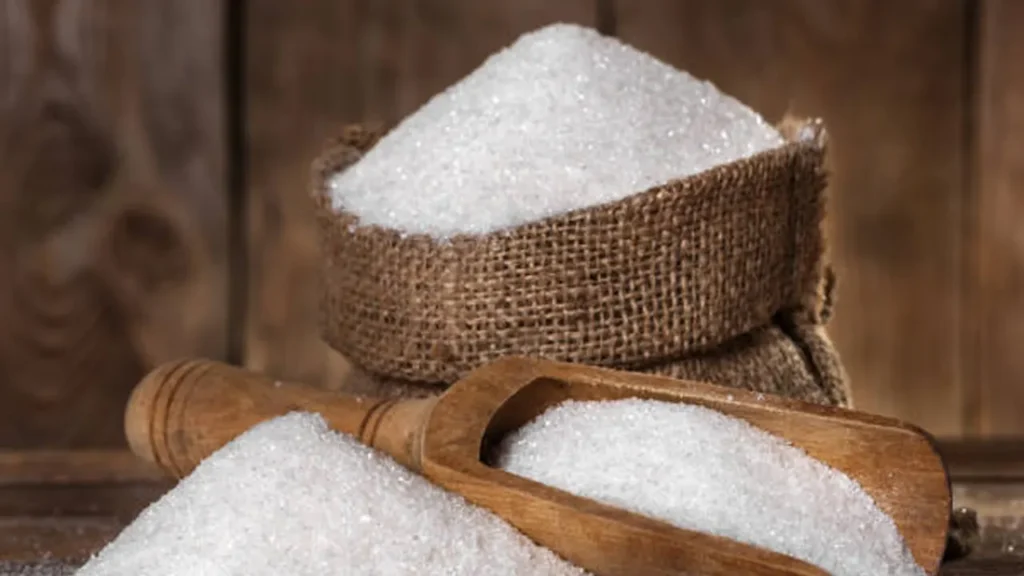- Web
- Feb 05, 2026
Sugar mills pocket Rs300bn amid crisis, PAC demands owners’ list
-

- Web Desk
- Jul 29, 2025

ISLAMABAD: The Auditor General of Pakistan revealed before the Public Accounts Committee (PAC) on Tuesday that sugar mills raked in a staggering Rs300 billion in profit due to recent fluctuations in sugar prices, triggering sharp criticism of the “sugar mafia” by committee members.
During a detailed briefing on the sugar crisis, PAC members grilled federal officials over the export and import of sugar, artificial price hikes, and alleged cartelisation by sugar mill owners.
The committee slammed both the federal advisory board and the government’s handling of the sector.
PAC Chairman Junaid Akbar expressed outrage over soaring market prices, saying sugar was being sold at Rs210 per kg while the ex-mill rate was officially Rs165.
“The entire nation is being exploited for the benefit of just 42 sugar mills,” he said, demanding full disclosure of owners and directors.
پارلیمنٹ کی پبلک اکاؤنٹس کمیٹی میں اراکین ڈٹ گئے۔ ہمیں شوگر ملز مالکان کے نام بتائے جائیں، وزارت صنعتی پیداوار نے کہا ہم ملز کے نام دے سکتے ہیں۔ آپ ہمیں مالکان کے نام دیں، ہم انتظار کرلیتے ہیں، کیٹی اراکین اڑ گئے pic.twitter.com/MLi6Wpd9iU
— Riaz ul Haq (@Riazhaq) July 29, 2025
He demanded to publicly name all individuals and businesses that profited from the crisis, saying the nation had a right to know who earned Rs300 billion at their expense.
He also questioned why new entrants were barred from entering the sugar industry, implying regulatory capture by entrenched interests.
Sugar production
Industry and Production Secretary informed the committee that sugar production in 2023-24 stood at 6.8 million tonnes, while total available stock was 7.6 million tones – 800,000 tonnes above national demand.
He said the Economic Coordination Committee (ECC) later allowed the export of 790,000 tonnes, of which 750,000 tonnes were actually exported. However, a subsequent decision was made to import 500,000 tonnes to stabilise domestic supply.
Major breakthrough in Bahria Town money laundering case
PAC members raised questions over this contradiction, particularly when provinces claimed there was no shortage. Officials admitted that sugar had been exported at Rs117 per kg, only to be imported later at Rs170 per kg.
Zardari owns highest number of sugar mills
Committee member Aamir Dogar claimed the Zardari family owned the highest number of sugar mills in Pakistan, followed by Jahangir Tareen and the Sharif family.
He said the industry was historically subsidized Rs10 per kg in 2017 with no checks or accountability.
However, his remarks prompted a strong rebuttal from PPP’s Shazia Marri, who called the claims baseless and demanded either evidence or retraction.
PAC also asked why tax exemptions were offered on imported sugar despite an IMF agreement discouraging such subsidies.
The food security secretary admitted that lower taxes aimed to make sugar affordable but warned that high duties would make imported sugar costlier.
‘Take legal action against sugar mill owners’
A visibly frustrated committee pressed for legal action against sugar mill owners who had promised not to raise prices but did so anyway.
Some members, including MNA Moeed Pirzada, accused the Sugar Advisory Board of being the root cause of price manipulation, calling it a tool of “elite capture.”
Largest sugar exporters
Later, the Industry Ministry submitted the list of mill owners and directors involved in sugar exports and imports.
JDW Sugar Mills was identified as the largest exporter, sending 494,000 tonnes of sugar to Afghanistan out of the 749,000 tonnes exported last year, worth nearly $400 million.
Chairman PAC reiterated the demand to publicly name all individuals and businesses that profited from the crisis, saying the nation had a right to know who earned Rs300 billion at their expense.
He also questioned why new entrants were barred from entering the sugar industry, implying regulatory capture by entrenched interests.
Standoff over sugar rates
Meanwhile, the standoff between sugar dealers and mill owners over wholesale rates remains unresolved.
Dealers complained that despite official claims, they were still unable to purchase sugar at Rs165 per kg and had suspended market supplies.
Suhail Malik of the Sugar Dealers Association accused mill owners of manipulating the system to export sugar in collusion with the government and then blaming dealers for shortages.
“The real profiteers have vanished from public view, while we are left to take the blame,” he said.
Sugar mills, however, have not responded publically to the issue, with sources maintaining that there was no shortage in stocks and that their position was well communicated to the government.




